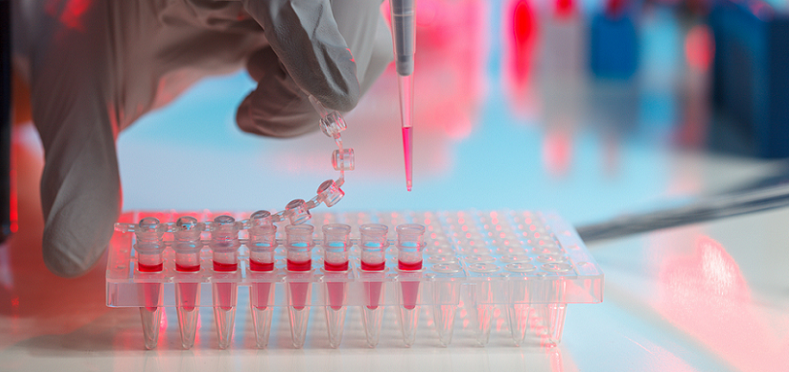
The ever-evolving world of nootropics offers a variety of options, and one compound that has captured the attention of researchers and enthusiasts alike is NSI-189. This promising nootropic has shown potential to not only enhance memory, focus, and learning capacity, but also to regulate mood and anxiety.
Contents
- Introduction to NSI-189
- The Science Behind NSI-189
- NSI-189 Benefits: Unlocking the Potential
- NSI-189 Dosage: A Guide to Optimal Use
- Clinical Trials and Research on NSI-189
- Potential Side Effects and Safety Concerns
- References
Introduction to NSI-189
The quest for cognitive enhancement and improved mental well-being has led to the discovery and development of numerous compounds, collectively known as nootropics. These substances are designed to optimize brain function, enhance memory, and promote overall cognitive health. One such promising nootropic that has garnered significant attention in recent years is NSI-189.
Definition of Nootropics
Nootropics, also known as “smart drugs” or “cognitive enhancers,” are substances that improve cognitive function, particularly executive functions, memory, creativity, or motivation. They may be natural compounds, such as herbal extracts and vitamins, or synthetic substances developed in laboratories. Nootropics have gained popularity among students, professionals, and individuals seeking to optimize their mental performance and maintain cognitive health as they age.
Overview of NSI-189
NSI-189 is a novel synthetic nootropic compound that was originally developed by the company Neuralstem, Inc. It is classified as a benzylpiperizine-aminiopyridine molecule and is believed to stimulate neurogenesis, or the growth of new neurons, in the hippocampus – a region of the brain crucial for memory formation and emotional regulation. Due to its unique mechanism of action and promising results in preclinical studies, NSI-189 has become an increasingly popular focus of research in the fields of cognitive enhancement and mental health.
The Emergence of NSI-189 as a Promising Nootropic
The potential of NSI-189 to promote neurogenesis and enhance cognitive function has caught the attention of both researchers and nootropic enthusiasts. While still in the early stages of clinical research, preliminary findings have suggested that NSI-189 may be effective in addressing various cognitive and emotional issues, such as memory impairment, depression, and anxiety [1]. This has led to a surge of interest in the compound and its potential applications, both as a standalone nootropic and as part of comprehensive cognitive enhancement strategies.

The Science Behind NSI-189
To better understand the potential benefits and applications of NSI-189, it is crucial to examine the scientific principles underlying its effects on the brain.
Mechanism of Action
The exact mechanism of action of NSI-189 remains to be fully elucidated; however, research suggests that it promotes neurogenesis by stimulating the growth and differentiation of neural stem cells in the hippocampus. Neural stem cells are the precursors of neurons and other brain cells, and their growth and differentiation play a pivotal role in maintaining cognitive health and neural plasticity.
By promoting neurogenesis, NSI-189 may help to counteract the natural decline in neural stem cell proliferation that occurs with age, as well as to address cognitive and emotional deficits resulting from neurological disorders or injuries.
Neurogenesis and Neural Growth
Neurogenesis, or the process of generating new neurons, is essential for maintaining optimal brain function and adapting to new experiences and challenges. While neurogenesis was once thought to occur only during early development, more recent research has demonstrated that it continues throughout adulthood in certain brain regions, particularly the hippocampus.
By stimulating the growth and differentiation of neural stem cells, NSI-189 may enhance neural plasticity, which is the brain’s ability to adapt and reorganize its neural connections in response to new experiences, learning, and environmental factors [2]. This, in turn, may contribute to improved cognitive performance and emotional regulation.
The Role of the Hippocampus
The hippocampus, a small, curved structure located deep within the brain, plays a critical role in the formation of new memories, as well as in learning and emotional regulation. Damage to the hippocampus, whether due to aging, injury, or disease, can result in significant cognitive and emotional impairments. By promoting neurogenesis in the hippocampus, NSI-189 may help to mitigate these impairments and support optimal cognitive and emotional functioning [3].

NSI-189 Benefits: Unlocking the Potential
The ability of NSI-189 to promote neurogenesis and enhance neural plasticity has been associated with a range of potential cognitive and emotional benefits.
Cognitive Enhancement
One of the primary reasons for the growing interest in NSI-189 is its potential to enhance various aspects of cognitive function. Research suggests that it may positively impact memory, focus, and learning capacity, making it an attractive option for those seeking to optimize their mental performance [4].
Memory Improvement
As previously mentioned, the hippocampus plays a vital role in memory formation. By stimulating neurogenesis in this region, NSI-189 may improve both short-term and long-term memory, helping individuals to retain and recall information more effectively. This could be particularly beneficial for students, professionals, and aging individuals who are experiencing memory decline.
Increased Focus and Concentration
NSI-189 has also been reported to enhance focus and concentration, which may result from its impact on neural plasticity and overall brain health. Improved focus can lead to increased productivity and efficiency in daily tasks and is essential for optimal cognitive performance in both academic and professional settings.
Enhanced Learning Capacity
By promoting the growth of new neurons and increasing neural plasticity, NSI-189 may also enhance an individual’s ability to learn and adapt to new information and experiences. This could potentially benefit people in various fields, from students seeking to excel in their studies to professionals looking to acquire new skills or stay up-to-date in their industries.
Mood and Anxiety Regulation
In addition to its cognitive-enhancing effects, NSI-189 has also been investigated for its potential to regulate mood and anxiety [5]. This could have significant implications for individuals struggling with depression, anxiety, and other emotional challenges.
Antidepressant Effects
Research has shown that neurogenesis is impaired in individuals with depression, and enhancing neurogenesis in the hippocampus has been suggested as a potential therapeutic target for antidepressant treatments. Preliminary studies have indicated that NSI-189 may possess antidepressant-like effects, which could make it a promising option for those seeking relief from depressive symptoms.
Reduction of Anxiety Symptoms
Anxiety disorders are among the most common mental health issues worldwide, and novel treatment options are continuously being explored. While further research is needed, initial findings suggest that NSI-189 may help to reduce anxiety symptoms, possibly by promoting neurogenesis and enhancing neural plasticity in the hippocampus.
Promotion of Emotional Well-Being
Overall, the ability of NSI-189 to stimulate neurogenesis in the hippocampus and enhance neural plasticity may contribute to improved emotional well-being. By addressing cognitive and emotional challenges, NSI-189 holds potential as a valuable tool for promoting mental health and resilience.
Potential Applications in Neurological Disorders
Given its unique mechanism of action and promising effects on cognitive function and emotional regulation, NSI-189 may have potential applications in addressing various neurological disorders. While more research is needed to fully understand its therapeutic potential, initial findings have been encouraging.
Alzheimer’s Disease
Alzheimer’s disease is a progressive neurodegenerative disorder characterized by memory loss, cognitive decline, and behavioral changes. Research has suggested that impaired neurogenesis may contribute to the pathogenesis of Alzheimer’s disease. By promoting neurogenesis and enhancing neural plasticity, NSI-189 could potentially help to mitigate the cognitive decline associated with this devastating condition [6].
Parkinson’s Disease
Parkinson’s disease is a neurodegenerative disorder characterized by the loss of dopamine-producing neurons in the brain. While the primary symptoms are motor-related, cognitive and emotional impairments are also common in individuals with Parkinson’s disease.
Although the primary focus of treatment has been on addressing motor symptoms, improving cognitive function and emotional well-being is essential for overall quality of life. By promoting neurogenesis and neural plasticity, NSI-189 may offer potential benefits for individuals with Parkinson’s disease who are experiencing cognitive and emotional challenges [7].
Traumatic Brain Injury
Traumatic brain injury (TBI) can result in a wide range of cognitive, emotional, and physical impairments, depending on the severity and location of the injury. Neurogenesis and neural plasticity play a critical role in the brain’s ability to recover and adapt following injury.
By stimulating the growth and differentiation of neural stem cells, NSI-189 could potentially support the brain’s natural healing processes and contribute to improved cognitive and emotional outcomes for individuals who have experienced TBI.

NSI-189 Dosage: A Guide to Optimal Use
As with any nootropic or medication, understanding the appropriate dosage for NSI-189 is crucial for ensuring safety and efficacy.
Recommended Dosage Range
While the optimal dosage of NSI-189 may vary depending on individual factors and desired outcomes, most clinical trials and anecdotal reports suggest a dosage range of 20-40 mg per day, divided into two or three doses throughout the day. This dosage range has been shown to be well-tolerated by most individuals and appears to provide the cognitive and emotional benefits associated with NSI-189 use.
Factors Affecting Dosage
Several factors may influence the ideal dosage of NSI-189 for individual users, including individual tolerance, severity of symptoms, and desired outcomes. It is essential to consider these factors when determining the optimal dosage for each person.
Individual Tolerance
As with any substance, individual tolerance to NSI-189 may vary. Some individuals may experience side effects or limited benefits at lower doses, while others may require higher doses to achieve the desired effects. It is essential to start with a low dose and gradually increase as needed to find the optimal dosage for each individual.
Severity of Symptoms
The severity of cognitive or emotional symptoms may also influence the optimal dosage of NSI-189. Individuals with more severe symptoms may require higher doses to achieve the desired benefits, while those with milder symptoms may find relief at lower doses. It is essential to work closely with a healthcare professional to determine the most appropriate dosage for each person’s specific needs.
Desired Outcomes
The intended outcomes of NSI-189 use may also play a role in determining the optimal dosage. For example, individuals seeking to enhance cognitive performance may require different dosages than those seeking relief from depressive or anxiety symptoms. It is essential to clearly define the desired outcomes and work with a healthcare professional to find the most effective dosage to achieve those goals.
Tips for Safe and Effective Use
To ensure the safe and effective use of NSI-189, it is essential to follow several guidelines:
Gradual Dose Adjustment
When beginning NSI-189, it is crucial to start with a low dose and gradually adjust as needed to find the optimal dosage for each individual. This approach allows users to minimize the risk of side effects and ensure that the most effective dosage is identified.
Monitoring for Side Effects
As with any nootropic or medication, it is important to monitor for potential side effects during NSI-189 use. If any side effects occur, it may be necessary to adjust the dosage or discontinue use, depending on the severity and persistence of the side effects.
Consultation with Healthcare Professionals
Before starting any new nootropic or medication, it is essential to consult with a healthcare professional, particularly if an individual has pre-existing medical conditions or is currently taking other medications. A healthcare professional can provide guidance on the safe and effective use of NSI-189, taking into account individual factors and potential interactions with other medications.
Clinical Trials and Research on NSI-189
While the potential benefits of NSI-189 are promising, it is essential to understand the current state of clinical research and the evidence supporting its use.
Key Clinical Trials
Several clinical trials have been conducted to investigate the safety and efficacy of NSI-189 in humans, with a particular focus on its potential applications in the treatment of depression and cognitive impairments.
Phase 1 and Phase 1b Clinical Trials
The initial Phase 1 clinical trial of NSI-189, conducted in healthy volunteers, demonstrated that the compound was well-tolerated and exhibited a favorable safety profile. A subsequent Phase 1b trial, conducted in patients with major depressive disorder (MDD), provided preliminary evidence of the compound’s potential antidepressant effects.
Although the study was primarily focused on safety and tolerability, secondary outcome measures suggested that NSI-189 may improve depressive symptoms and cognitive function in patients with MDD.
Phase 2 Clinical Trial
A Phase 2 randomized, double-blind, placebo-controlled trial investigated the efficacy of NSI-189 in patients with MDD. The study found that while NSI-189 did not achieve statistical significance on the primary endpoint (a reduction in depression severity), it did demonstrate improvements in several secondary outcome measures, including cognitive function, quality of life, and self-reported depressive symptoms.
These findings suggest that NSI-189 may offer potential benefits for patients with MDD, particularly in terms of cognitive function and overall well-being.
Limitations of Existing Research
While the results of these clinical trials are encouraging, there are several limitations to the existing research on NSI-189:
Small Sample Sizes
The clinical trials conducted to date have involved relatively small sample sizes, which can limit the generalizability of the findings. Larger studies with more diverse patient populations are needed to better understand the safety and efficacy of NSI-189 and to determine its optimal dosage and therapeutic applications.
Lack of Long-Term Data
The clinical trials conducted thus far have been relatively short in duration, with treatment periods ranging from a few weeks to a few months. Long-term studies are needed to assess the safety and efficacy of NSI-189 over extended periods of use and to determine whether its effects are sustained over time.
Need for Additional Outcome Measures
While the existing clinical trials have focused primarily on depression and cognitive function, additional research is needed to explore the potential benefits of NSI-189 for other cognitive and emotional outcomes, as well as its potential applications in the treatment of various neurological disorders.
Potential Side Effects and Safety Concerns
While NSI-189 has demonstrated a favorable safety profile in clinical trials thus far, it is essential to be aware of potential side effects and safety concerns associated with its use.
Reported Side Effects
Although NSI-189 has been generally well-tolerated in clinical trials, some individuals have reported side effects during its use. It is important to note that these side effects are typically mild and may resolve over time or with dosage adjustments.
Headaches
Headaches are among the most common side effects reported by users of NSI-189. While they are typically mild and transient, it is important to monitor for any changes in headache severity or frequency.
Dizziness
Some users have reported experiencing dizziness while taking NSI-189. As with headaches, this side effect is generally mild and may resolve with continued use or dosage adjustments.
Fatigue
Fatigue has also been reported by some users of NSI-189. This side effect may be related to the compound’s effects on neurogenesis and neural plasticity, as the brain adapts to the increased growth and connectivity of neurons. Fatigue may decrease over time as the brain adjusts to the changes.
Insomnia
A small number of users have reported experiencing insomnia or sleep disturbances while taking NSI-189. This side effect may be due to the compound’s effects on cognitive function and alertness. Adjusting the dosage or timing of administration may help to alleviate sleep-related side effects.
Safety Precautions
To ensure the safe and effective use of NSI-189, it is essential to follow several safety precautions:
Consult with a Healthcare Professional
As with any new nootropic or medication, it is important to consult with a healthcare professional before starting NSI-189, particularly if you have pre-existing medical conditions or are currently taking other medications.
Gradual Dose Adjustment
When beginning NSI-189, it is crucial to start with a low dose and gradually adjust as needed to find the optimal dosage for each individual. This approach allows users to minimize the risk of side effects and ensure that the most effective dosage is identified.
Monitoring for Side Effects
As with any nootropic or medication, it is important to monitor for potential side effects during NSI-189 use. If any side effects occur, it may be necessary to adjust the dosage or discontinue use, depending on the severity and persistence of the side effects.
Potential Drug Interactions
While there is currently limited information on potential drug interactions with NSI-189, it is essential to consult with a healthcare professional before combining it with other medications or supplements. This is particularly important for individuals taking medications for depression, anxiety, or other neurological disorders, as there may be potential interactions or additive effects.
References
[1] Study of NSI-189 for Major Depressive Disorder
[2] Preliminary findings show safety, tolerability of NSI-189
[3] Remediation of Radiation-Induced Cognitive Dysfunction through Oral Administration of the Neuroprotective Compound NSI-189
[4] The neurogenic antidepressant compound, NSI-189, shows potential as a broad neurotrophic agent
[5] Enhancement of synaptic plasticity and reversal of impairments in motor and cognitive functions
[6] A phase 2, double-blind, placebo-controlled study of NSI-189 phosphate, a neurogenic compound
[7] The neurogenic compound, NSI-189 phosphate: a novel multi-domain treatment capable of pro-cognitive and antidepressant effects

